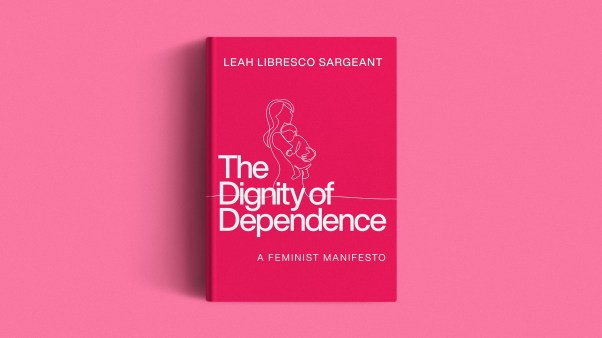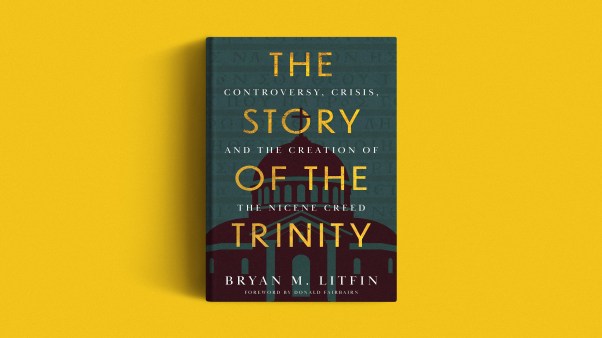
Glenn T. Stanton has made a career studying the role of families in our society—both as a consultant in the George W. Bush administration and today as director for family formation studies at Focus on the Family. His latest book, The Ring Makes All the Difference: The Hidden Consequences of Cohabitation and the Strong Benefits of Marriage (Moody), explores the many downsides of an increasingly popular practice among young couples: living together before marriage. Caryn Rivadeneira, an author and regular contributor to the CT women's blog, Her.meneutics, spoke with Stanton about his research findings and why they matter to men, women, and children.
The Ring Makes All the Difference: The Hidden Consequences of Cohabitation and the Strong Benefits of Marriage
Moody Publishers
152 pages
$5.91
Why did you focus on the scientific data about the dangers of cohabitation, rather than Scripture?
There's a natural theology in creation that we need to observe. My use of science and data is a pounding on the pulpit. As Christians we read out of two books: the book of Scripture and the book of nature. That's how godly people—and smart people—should look at the world.
Should pastors, for instance, cite academic research to counsel people who are considering living together?
We already know ideologically that marriage is a different relationship than cohabitation, but we need to know that research data support God's Word. The Bible is not some antiquated thing that we need to keep as far as we can from science, lest science overshadow it. It's really quite dramatic how science confirms the scriptural understanding of marriage.
Is cohabitation more or less egalitarian than marriage?
Marriage is actually a very pro-woman institution. People don't fully realize what a raw deal for women cohabitation is. Women tend to bring more goods to the relationship—more work, more effort in tending to the relationship—but they get less satisfaction in terms of relational commitment and security.
We sometimes think of marriage as a "ball and chain" relationship. However, from a Christian standpoint, when two become one, they are—in a much healthier way—two independent individuals coming into the relationship, rather than the kind of unhealthy enmeshment we find in cohabitation.
Some couples want to "test drive" their relationship before committing to marriage. Does this help or hurt?
Scientists find that cohabitation cuts down on commitment. The message of living together is, "I'd really only like to take part of you. And maybe some time later I'd like to take all of you." No wonder so many cohabitating couples break up or fall into unhealthy patterns. The relationship defines itself by a holding back of commitment.
People, especially men, who cohabit are less committed to that relationship but also less committed to future relationships. Again, that's not a preacher's line or a moralizer's line. That's a scientific line. Cohabitating men who go on to marry are significantly less committed to the marriage itself than men who don't cohabit.
Might living together give couples any good "marriage practice" in some areas—like communication?
Actually, the data say that cohabitating trains couples to fight in an unhealthy way. Because they don't have the commitment or security, cohabiters tend to be more relationally and emotionally manipulative. The person may not have any idea of leaving, but the other partner has the sense that he or she could leave. So, their interactions are different: the way they negotiate, the way they ask for things from one another.
Are there any statistical upsides to living together?
There's only one I've ever come across: "elevated sexual engagement." Couples who cohabit are more likely to have sex more often. But that's only early in the relationship. It doesn't maintain itself over time. Over the long haul, married couples have more sex and have more fulfilling sex.
What sorts of problems do children in cohabitating households tend to experience?
In terms of safety, the absolute highest risk living situation for kids—and it's three to four times higher—is living with mom and her boyfriend. Researchers say that few things place children in more harm than having them live with an unrelated adult in the home.
Cohabitating homes see significantly more drug use, more alcohol abuse, and more infidelity. The other finding—and I found this very surprising—is that cohabitating couples earn dramatically less than their married peers. They're also less likely to spend that money on the children.
What would you say to those who believe cohabitation can help people marry the "right person"?
Stanley Hauerwas, an ethicist at Duke, says that we always marry the wrong person. The sooner young couples can understand that, the better off they'll be. I hear young couples say, "You mean you don't want us to be soul mates?" But nobody marries his or her soul mate. You become soul mates by living life together through those years.
So often cohabiters are looking, in the first year, for what comes only after years—decades!—of life together. You are setting yourself up for dramatic disappointment if you think life works that way.
Copyright © 2011 Christianity Today. Click for reprint information.
Related Elsewhere:
The Ring Makes All the Difference: The Hidden Consequences of Cohabitation and the Strong Benefits of Marriage is available from ChristianBook.com and other book retailers.
A Bible study based on this article, "Love and Consequences: The Truth about Living Together," is available at ChristianBibleStudies.com.
Additional Christianity Today articles on marriage and cohabitation includes:
Marriage in Obsolescence | Why recent headlines on marriage don't do the new Pew survey justice. (November 19, 2010)
The Case for Early Marriage | Amid our purity pledges and attempts to make chastity hip, we forgot to teach young Christians how to tie the knot. (July 31, 2009)
Better Together? | Only in holy matrimony, not in cohabitation. (March 13, 2008)
CT also has more books, music, movies, and other media reviews on our website.











